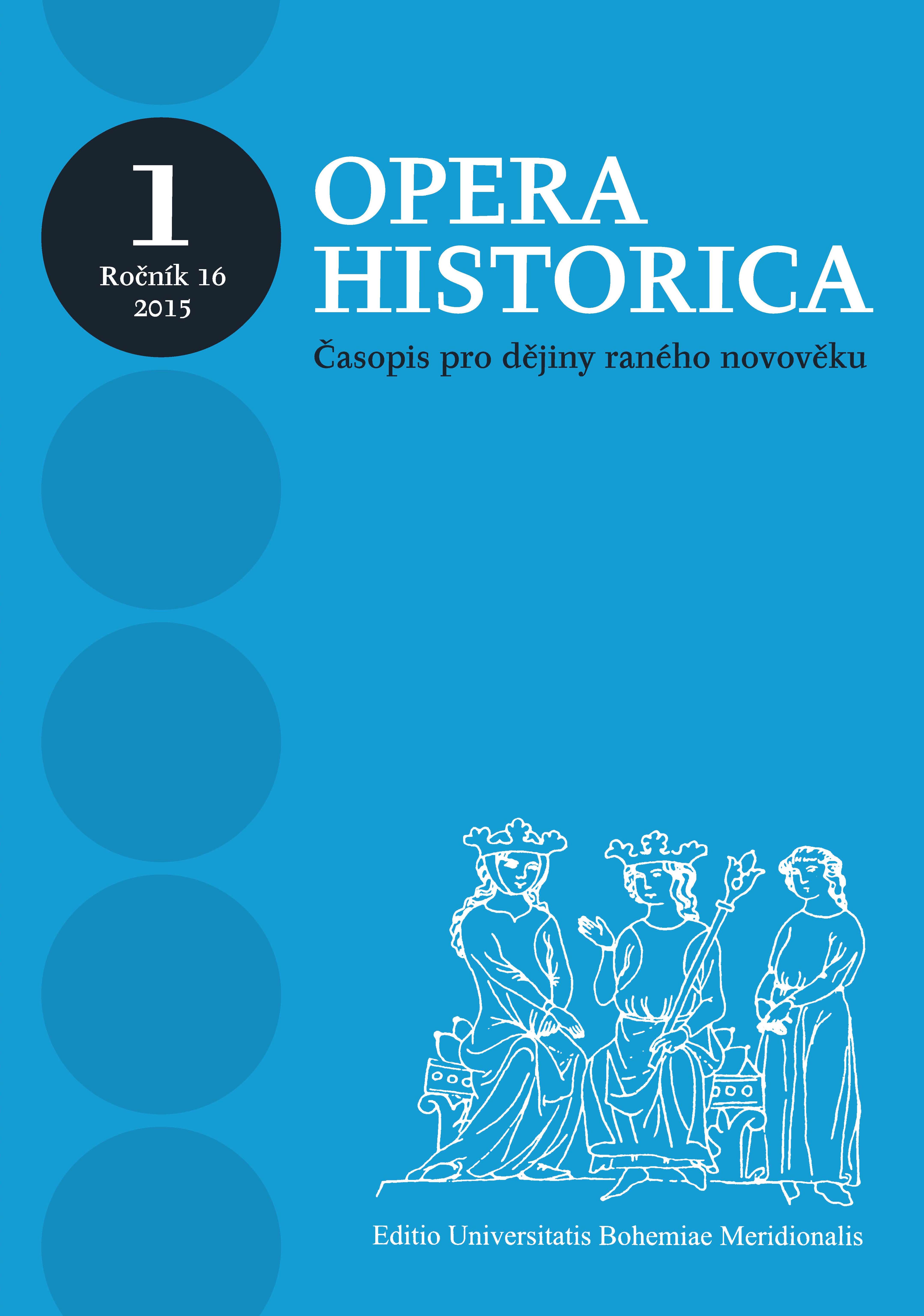Die Rezeption von Luthers Werken in den böhmischen und österreichischen Adelsbibliotheken der Frühen Neuzeit (1550–1620)
Reception of Luther’s books in Bohemian and Austrian libraries of nobility during
Early Modern Age (1550–1620)
Author(s): Lenka VeseláSubject(s): History, 16th Century, 17th Century
Published by: Jihočeská univerzita v Českých Budějovicích
Keywords: Libraries of nobility; Bohemian and Austrian lands; work of Martin Luther; Early Modern Age
Summary/Abstract: The study deals with the reception of Luther’s writings in five library collections fromBohemia, Moravia and Austria different in its type as well as size dated to the turn of 16thand 17th Centuries: owned by Adam of Dietrichstein, Hieronymus Beck of Leopoldsdorf,Petr Vok of Rosenberg, Ferdinand II of Tyrol and Ferdinand Hoffmann of Grünbüchl.Within the context of analyzing the presence of Luther’s works in these libraries, theauthor notices that the research of such topic requires not only studying the personality ofa particular owner (or owners), his or her education, interests or confessional orientation;but also the “innate history” of the family library and its functioning in the context ofa concrete noble court. Therefore the definite conclusions about the reception of particularworks can be formulated mostly in cases of those libraries which were of selective structure.Considerable limits concerning the researches of book reception in Pre-White-Mountainperiod libraries of nobility are related not only to general questions of readership inthe nobility milieu, but also to narrow source bases offered there. However, it is obviousthat the absence of Luther’s works in some of the mentioned libraries could stand forignoring a specific segment of literature due to religious reasons (e.g. by Adam of Dietrichstein),or just a coincidental event or lack of interest as it was probably in the case ofthe court of Ferdinand II of Tyrol.On the contrary, a specific way of reception of Luther’s works at the court of HieronymusBeck confirms a unique intellectual character of his library within the Central-European area. By analyzing large and universally generated collections, such as theRosenberg’s and Hoffmann’s libraries, it was possible to gain only very general findingscovering for example the thematic ordering of the Luther’s works there.
Journal: Opera Historica
- Issue Year: 18/2017
- Issue No: 2
- Page Range: 206-220
- Page Count: 15
- Language: German

